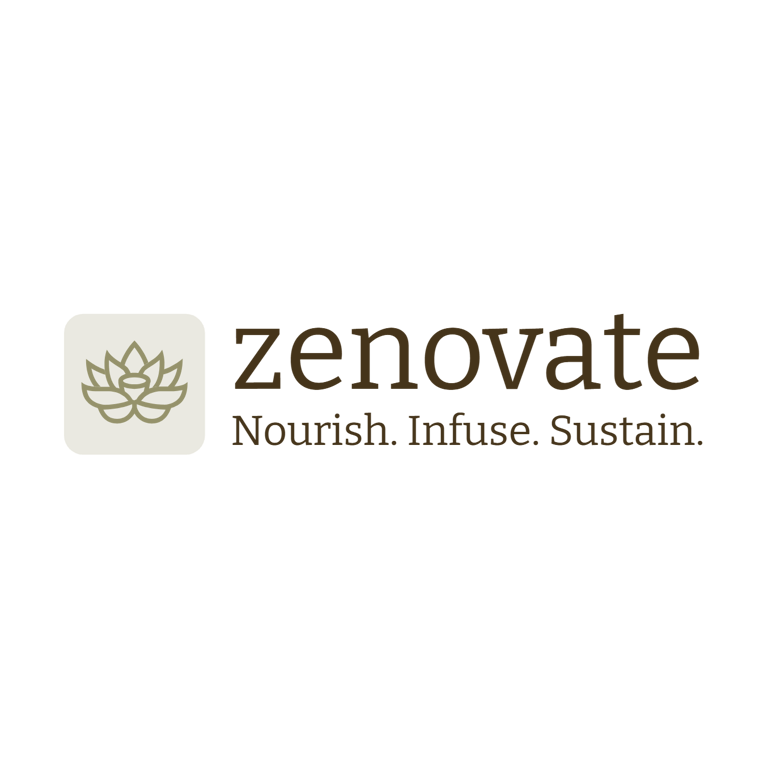Nutritional Powerhouse - Powerful Medicinal Benefits of Cinnamon
Discover the powerful medicinal benefits of cinnamon : blood sugar control, cardiovascular support, and anti-inflammatory properties. Learn about cinnamaldehyde, polyphenols, and essential compounds that enhance metabolic health and longevity.
NOURISH
11/19/20254 min read



Introduction
Cinnamon, derived from the inner bark of trees belonging to the genus Cinnamomum, stands as one of the world's most beloved and therapeutically valuable spices. This aromatic bark has been treasured for over 4,000 years, not only for its distinctive sweet and warming flavor but also for its remarkable medicinal properties. Ancient civilizations from Egypt to China recognized cinnamon as more valuable than gold, trading it across continents and incorporating it into their most sacred rituals and healing practices.
There are two primary types of cinnamon available today: Ceylon cinnamon (Cinnamomum zeylanicum), often called "true cinnamon," and Cassia cinnamon (Cinnamomum cassia), which is more commonly found in supermarkets. While both varieties offer health benefits, Ceylon cinnamon is generally preferred for therapeutic use due to its lower coumarin content and superior bioactive compound profile.
Research conducted through medical websites and organic producers reveals that cinnamon's therapeutic power lies in its rich concentration of bioactive compounds, particularly cinnamaldehyde, which gives cinnamon its characteristic aroma and many of its health benefits. Unlike many modern supplements that isolate single compounds, cinnamon provides its benefits through a synergistic blend of essential oils, polyphenols, and other naturally occurring compounds that work together to support human health.
Modern scientific research continues to validate the traditional uses of cinnamon, revealing that this ancient spice possesses anti-inflammatory, antioxidant, antimicrobial, and metabolic-regulating properties that can support multiple aspects of health and wellness.
Medicinal Value
The medicinal reputation of cinnamon is well-founded in both traditional healing systems and modern scientific research. In addition to being an antioxidant, anti-inflammatory, antidiabetic, antimicrobial, anticancer, lipid-lowering, and cardiovascular-disease-lowering compound, cinnamon has also been reported to have activities against neurological disorders, such as Parkinson's and Alzheimer's diseases.
In traditional medicine cinnamon is considered a remedy for respiratory, digestive and gynaecological ailments. In-vitro and in-vivo studies from different parts of the world have demonstrated numerous beneficial medicinal effects of Cinnamomum zeylanicum. This extensive traditional use across diverse cultures speaks to cinnamon's broad therapeutic applications and safety profile when used appropriately.
The primary bioactive compound responsible for many of cinnamon's medicinal effects is cinnamaldehyde, which comprises 60-70% of the essential oil content. Cinnamaldehyde, one of the main active components of cinnamon, may be beneficial against various kinds of infection. This compound works through multiple pathways in the body, influencing everything from glucose metabolism to inflammatory responses.
It seems to reduce plasma glucose levels more effectively than metformin, which is commonly used in traditional medicine. Bioactive compounds of cinnamon oil enhance the expression of proteins that play a key role during glucose transport, insulin signaling, and the regulation of dyslipidemia. This remarkable finding positions cinnamon as a potentially powerful natural alternative for blood sugar management.
Beyond cinnamaldehyde, cinnamon contains numerous other therapeutic compounds including eugenol, linalool, and various polyphenolic compounds that contribute to its broad spectrum of health benefits. These compounds work synergistically to provide anti-inflammatory, antioxidant, and antimicrobial effects that support overall health and wellness..
Vitamin & Mineral Profile
Cinnamon boasts an impressive nutritional profile that contributes significantly to its health benefits. Research from medical websites and organic producers reveals that this aromatic spice is remarkably nutrient-dense, earning recognition as a superfood with therapeutic potential.
Exceptional Mineral Content: It offers a good source of iron and vitamin K and a very good source of calcium, manganese and dietary fiber. The mineral profile of ground cinnamon per 100 grams includes some truly remarkable concentrations:
Manganese: 17.5mg - This represents an extraordinary amount of manganese, providing far more than the daily requirement in just a small serving. Cinnamon is also rich in the mineral manganese. This mineral helps your body manage the enzymes that produce hormones and help repair your bones. Manganese also works as an antioxidant as part of the enzyme manganese superoxide dismutase, protecting your body from free radicals.
Calcium: 1002.0mg - An exceptional source of calcium, crucial for bone health, muscle function, and nerve transmission. Magnesium and calcium work together to maintain a healthy heartbeat. These two minerals are essential for skeletal health and play a key role in preventing the weakening of bones, a condition called osteoporosis.
Iron: 8.3mg - Important for oxygen transport, energy production, and immune function.
Additional Essential Minerals:
Magnesium: 60.0mg - Essential for over 300 enzymatic reactions
Potassium: 431.0mg - Important for heart health and blood pressure regulation
Phosphorus: 64.0mg - Crucial for bone health and energy metabolism
Zinc: 1.8mg - Essential for immune function and wound healing
Copper: 0.3mg - Important for collagen synthesis and iron absorption
Vitamin Profile: Vitamin K 31.2µg - Essential for blood clotting and bone health, representing a significant portion of daily needs.
Fiber Content: Ground cinnamon has 80.6g of carbohydrates per 100g. It has 53.1 grams of fiber out of 80.6 grams of carbs, making it an exceptional source of dietary fiber that supports digestive health and blood sugar regulation.
Nutrient Density Recognition: Cinnamon has a Nutrivore Score of 1146, which makes it a super nutrient-dense food! It is particularly high in polyphenols (especially cinnamic acid), manganese, and dietary fiber.

Health Benefits

Our Recommendations
We review each product and only recommend items that are beneficial and of high quality.
We do participate in affiliate marketing programs and may earn commissions from qualifying purchases made through links on this site. We only recommend products we believe may benefit your wellness journey. Your purchase price remains the same, and this helps support our mission to provide valuable health content.
We do not produce, store, ship, or process payments for any products listed. All product availability, pricing, returns, refunds, exchanges, and warranties are managed by the respective manufacturer or authorized retailer. Customers must contact the original seller directly for any order-related inquiries. Full disclosure available here.

Research Material
Zenovate
Nourish. Infuse. Sustain.
Contact
Follow
© 2025. All rights reserved.
© 2025 Zenovate.me. All images and content are protected under international copyright law. Unauthorized use prohibited.


RESOURCES
Disclaimer: The following recommendations are for general informational and educational purposes only and are provided to the best of our knowledge after careful research, study and analysis on naturally produced foods and drinks. We focus on providing information that improves your general wellness with certain aspects of the body and the information herein is not intended to diagnose, treat, cure, or prevent any disease. Click here to read our full disclaimer. If in any doubt, consult your health practitioner before making health-related decisions.
Affiliate & Returns Disclosure: Zenovate.me participates in affiliate marketing programs and may earn commissions from qualifying purchases made through links on this site. We only recommend products we believe may benefit your wellness journey. Your purchase price remains the same, and this helps support our mission to provide valuable health content.
Whilst Zenovate.me participates in affiliate programs, it does not manufacture, sell, or ship products. All purchases are completed with third-party retailers, who are solely responsible for order fulfillment, returns, refunds, and warranties. Please review the seller’s policies before purchasing.
Full disclosure available here.


